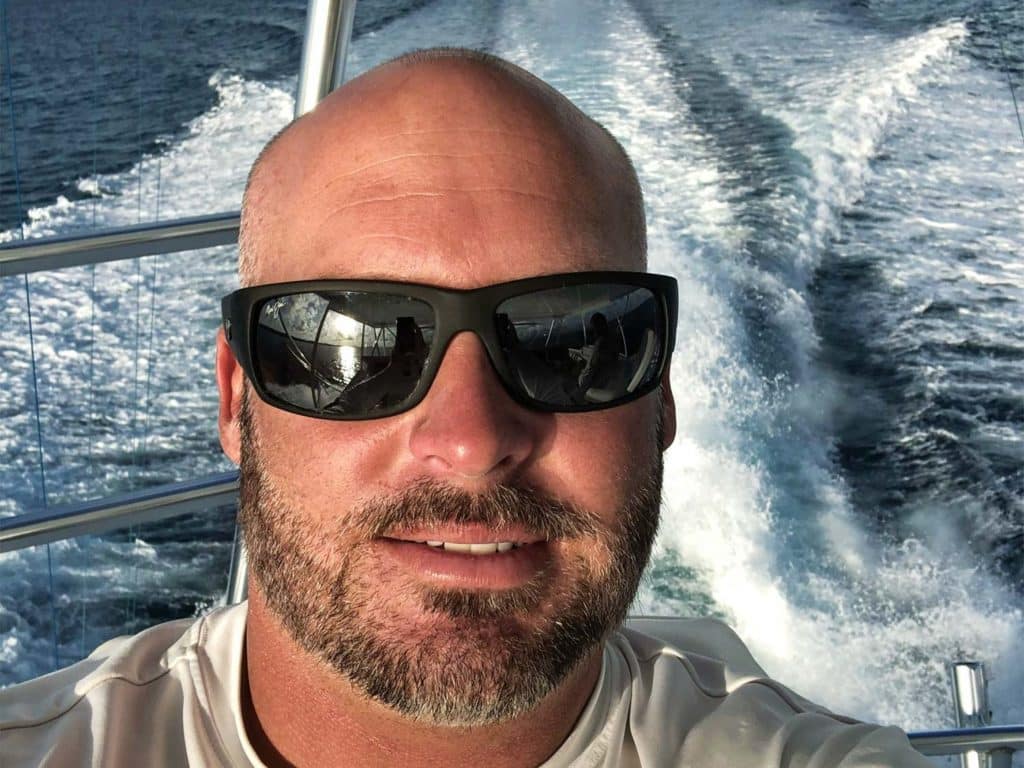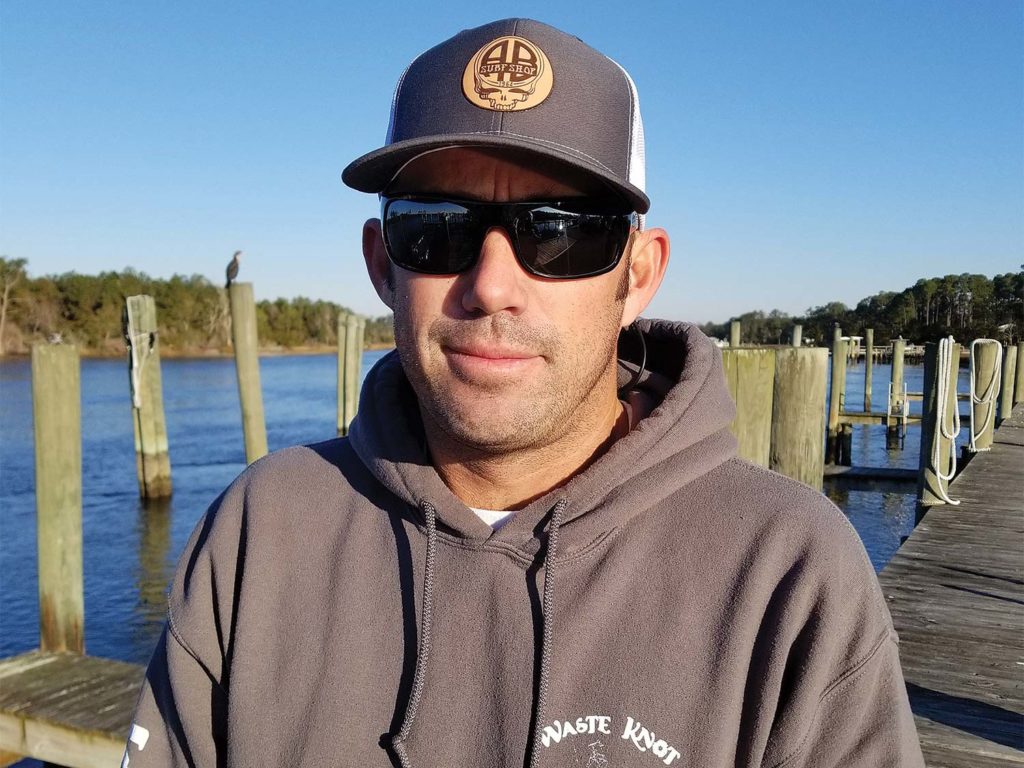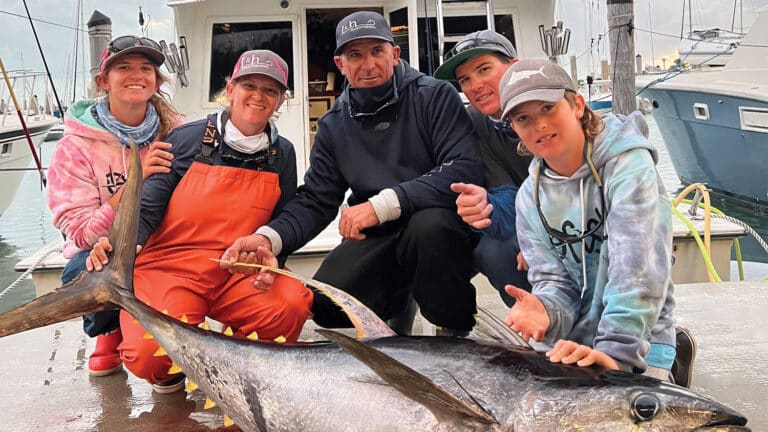
Capt. Jeffrey DeSilva

When it comes to pulling plastics, everyone has their own ideas. I like to keep it simple, preferring a single-hook rig, with the hook sitting upright behind all my lures. This way, the water pressure naturally makes the hook want to swim, and it has given me the best hookup ratio. But for sake of simplicity, I rig my spread with the same single-hook setup, regardless of lure type. Ultimately, everyone has their own preference, and what works for one might not work for another. So, I say get out there and see what works best for you!
Capt. Brian Rabbitt

We fish the hooks up in our lures because the hookup ratio is consistent: aiming to hook the fish in the corner of the bony top jaw as opposed to the softer bottom jaw. Before I went to Bermuda for the first time, I spoke to some other captains to hear their opinions on the subject and decided to fish the hooks up in the season’s first tournament. We hooked and released every fish we saw, finishing second at the Big Game Classic. So now, every time a lure goes overboard, the hook is not only sharp, it’s pointed up.
Watch: Learn to rig a swimming Spanish mackerel here.
Capt. Chip Van Mols

I run single-hook rigs pointing up in symmetrical-shaped lures such as bullets, jets, flat- or funnel-faced/cupped. A single hook trolled through the water by itself will run with its point facing up, so there’s no sense in fighting what happens naturally. When transitioning from our 180-degree double-hook rigs to singles in our slant-faced lures, they ran with more side-to-side action instead of nice and straight. Face the point down, and they run straight. So, my answer is both! The lure must swim perfectly, so keep in mind a heavy-gauge hook can overpower the slant and flip it upside down if it’s not keel-weighted.
Read Next: Leave nothing to chance with these bulletproof lure rigging techniques from Hawaii’s Capt. Bryan Toney.
Capt. Michael Tickle

In our single, stiff-rigged hook-sets, we always fish with the hook pointed up. We have also scaled down our hook size, rarely using anything larger than a 10/0, even in the larger lures—most of them getting rigged with a 9/0. I believe by fishing the point up, you’re giving the tip of the hook the biggest possible target for it to find its mark. Since we have started doing this, our hookup percentage has been consistently high, and very rarely do we pull a fish off once we have settled into the fight.







